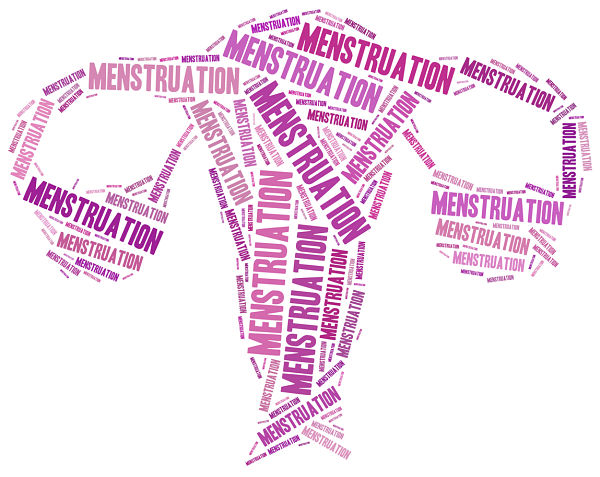Thyroid Function and Menstruation

A patient of mine confided her surprise at being diagnosed with an underactive thyroid having gone to her GP with abnormally heavy periods. So heavy that she had actually become anaemic.
What she, and indeed many women don’t realise, is that your thyroid helps to control your menstrual cycle and those with too much thyroid hormone or too little may experience heavy (menorrhagia), irregular (oligomenorrhoea) or even absent periods over a 3 or more months (amenorrhoea).
How Hypothyroidism can affect your periods
In a study of 171 pre-menopausal women with hypothyroidism,
- 77% had regular cycles
- 23% had irregular cycles
- 7% had heavy periods
Compared with a control group of women who did not have hypothyroidism whereby
- 92% had regular cycles
- 7% had irregular cycles and
- 1% had heavy periods
Among the women with hypothyroidism who had abnormal cycles, the abnormalities persisted in almost half of them despite Levothyroxine therapy.
These menstrual changes result in decreased fertility and, unfortunately, if pregnancy does occur, there is an increased likelihood for early miscarriage.
A drop in your thyroid hormone levels cause your hypothalamus to produce extra TRH ( Thyrotrophin-releasing hormone) and your pituitary gland to produce extra TSH (thyroid stimulating hormone) as well as a hormone called prolactin.
The latter is referred to as “Hyperprolactinemia” and is occasionally sufficiently severe to cause periods to stop for 3 or more months or for milky discharge to come from the nipple despite the fact that you are neither pregnant nor nursing (this is known as galactorrhoea)
Irregularities will vary usually according to the severity of your hypothyroidism.
- Ovulation is actually stopped and this anovulation can lead to irregular growth and discarding of the womb lining which manifests itself as heavy periods. Some women experience this monthly and others experience this every few months.
- Rarely, changes in the level of prolactin can change in how the pituitary gland controls the ovaries and this results in periods stopping completely.
- Clotting (coagulation) factors may be affected so that the risk of heavy bleeding is increased.
How Hyperthyroidism can affect your periods
The most common way in which hyperthyroidism is seen to affect the menstrual cycle is stopping periods or making them more irregular and lighter. This is known as hypomenorrhoea and occurs because increased thyroid hormone causes an increase in SHBG (sex hormone-binding hormone)
Mainly produced by the liver, SHBG is a protein which controls the amount of sex hormones - testosterone, dihydrotestosterone and oestradiol in your blood stream. These hormones are found in two forms – free and bound. The latter is caused by SHBG binding to the sex hormone molecules and rendering them inactive.
Levels of SHBG change as we age. For most people they are high in childhood, level off between 9 and 12 and then rise again during puberty. Post puberty levels settle at between 18 and 14 nmol/L
In hyperthyroid women, SHBG concentrations are usually high, which results in
- high serum levels of oestradiol which are bound and therefore inactive
- low to normal levels of active oestradiol levels
- high levels of luteinizing hormone (LH) levels which are bound and therefore inactive
- a reduced mid-cycle surge in LH secretion
This leads to irregular periods and infertility due to the lack of ovulation. Women with a severely overactive thyroid may also experience their periods stopping for three or more months
When should you consult your doctor?
There are several reasons why your periods can become irregular, the main thing is to seek advice if
- Your flow is heavy for in excess of 24 hours
- Your periods are occurring more frequently than every 21 days
- Your periods have not occurred for more than 3 months (and you are not pregnant)
If you already have hypothyroidism or hyperthyroidism ask your doctor to check your TSH levels by doing a blood test. If these are normal or do not normalise with treatment you should ask your doctor to look into other causes.
This is also extremely important if you are trying to conceive and are experiencing fertility problems. In this instance the following blog posts also contain helpful information
I hope this has been helpful.
Thyroid related blogs
Preparing for a successful pregnancy with a thyroid condition
The importance of maintaining good levels of iodine
Antenatal/postnatal medication for women with thyroid or diabetic conditions
Thyroid problems and trying to conceive
PCOS related blogs:
PCOS and struggles to conceive
Diabetes related blogs
Gestational diabetes – risks, symptoms, complications and treatment
Although every effort is made to ensure that all health advice on this website is accurate and up to date it is for information purposes and should not replace a visit to your doctor or health care professional.
As the advice is general in nature rather than specific to individuals Dr Vanderpump cannot accept any liability for actions arising from its use nor can he be held responsible for the content of any pages referenced by an external link










